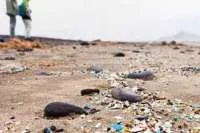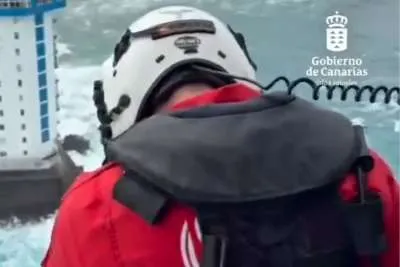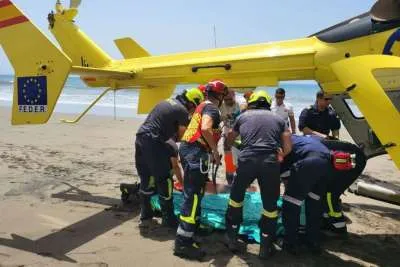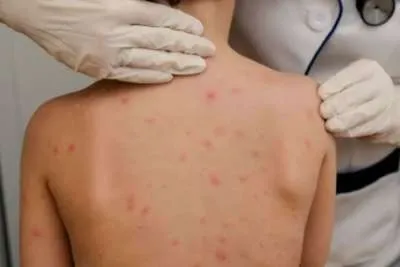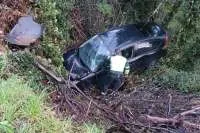Three new imported cases of Oropouche virus detected by Canarian Health Authorities
- 27-08-2024
- National
- Ministry of Health
- Photo Credit: WHO
The Canary Islands Directorate General of Public Health has confirmed three new cases of the Oropouche virus, imported from Cuba. The affected people are a 36-year-old man and a 32-year-old woman from Tenerife, as well as a 52-year-old man from Gran Canaria. All three began exhibiting symptoms consistent with the virus after returning from trips to Cuba.
The patients reported symptoms such as fever, diarrhoea, and joint pain. Initial tests conducted in the Canary Islands to detect dengue, Zika, and chikungunya returned negative results. Consequently, samples from the patients in Tenerife, taken at the Hospital Universitario Nuestra Señora de Candelaria, and from the patient in Gran Canaria, taken at the Hospital Universitario de Gran Canaria Doctor Negrín, were sent to the National Microbiology Centre. The centre has now confirmed all three cases as positive for the Oropouche virus.
Fortunately, all three have responded well to treatment and have not required hospitalisation. However, three additional cases are currently under investigation, one of which has been under review for several weeks.
These cases follow the first confirmed instance of the Oropouche virus in the Canary Islands earlier this month. A 49-year-old man from Gran Canaria tested positive after returning from Cuba and also recovered without the need for hospitalisation. This case has since been closed.
The Health Alert and Emergency Coordination Centre (CCAES) has reported additional cases of the Oropouche virus in other Spanish regions, including Galicia, Andalusia, the Basque Country, and Madrid in the last few weeks.
Travel Recommendations
The Canary Islands Directorate General of Public Health has reiterated travel recommendations issued by the Ministry of Health for those planning to visit areas where Oropouche virus outbreaks have been reported, including Brazil, Peru, Argentina, Bolivia, Cuba, Panama, and Trinidad and Tobago. These precautions are especially important for pregnant women, those planning to conceive, and travellers with chronic or immune system conditions.
People often forget that the Canary Islands have a strong affiliation with South America, with more Canarians hailing from the region than from mainland Spain.
Key recommendations include:
- Use mosquito repellents containing DEET, picaridin, Citriodiol, or IR3535.
- For those at higher risk of mosquito bites, such as forestry or agricultural workers, wearing long-sleeved clothing and using repellents is advised.
- For infants under two months old, use physical barriers like mosquito nets, and avoid repellents. For older infants, prioritise physical barriers and consult repellent manufacturers' guidelines.
- Wear light-coloured clothing that covers most of the body, particularly during peak mosquito activity times at dawn and dusk. Avoid bright colours, especially yellow, which attract mosquitoes.
- Avoid using strong perfumes.
- Install fine mesh screens on doors and windows, whether treated with insecticides or not, if the accommodation is not properly climate-controlled. Do not open windows without intact screens.
- In domestic environments, using insecticides to kill mosquitoes can provide additional protection.
- In areas where an outbreak has been declared, outdoor activities should be avoided during peak mosquito activity periods.
About the Oropouche Virus
First identified in 1955 in Vega de Oropouche, Trinidad, the Oropouche virus is transmitted through bites from midges and mosquitoes, which are not currently present in Europe but are common in Latin America. The virus typically causes symptoms such as vomiting, nausea, fever, headaches, and diarrhoea, lasting five to seven days. In rare cases, it can lead to more severe conditions like aseptic meningitis.
As of July 30th, 2024, over 8,000 cases have been reported across Brazil, Bolivia, Peru, Cuba, and Colombia. The Pan American Health Organisation (PAHO) and the World Health Organisation (WHO) issued an epidemiological alert on August 1st, urging countries to strengthen surveillance and improve laboratory diagnostics to detect and control the virus.
Other articles that may interest you...
Trending
Most Read Articles
Featured Videos
TributoFest: Michael Buble promo 14.02.2026
- 30-01-2026
TEAs 2025 Highlights
- 17-11-2025







